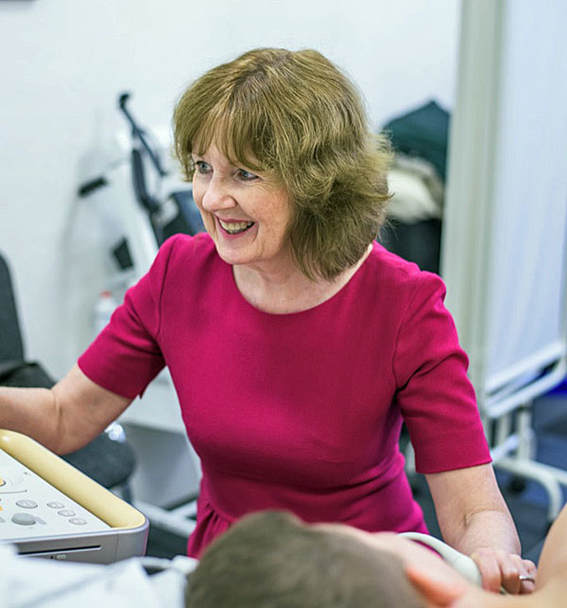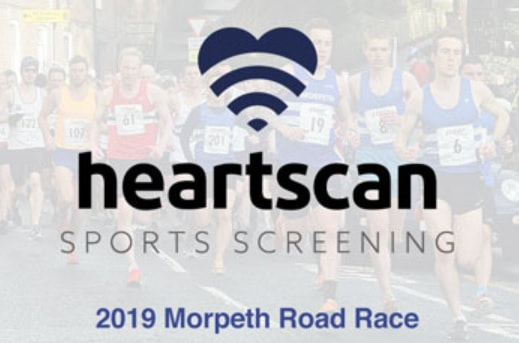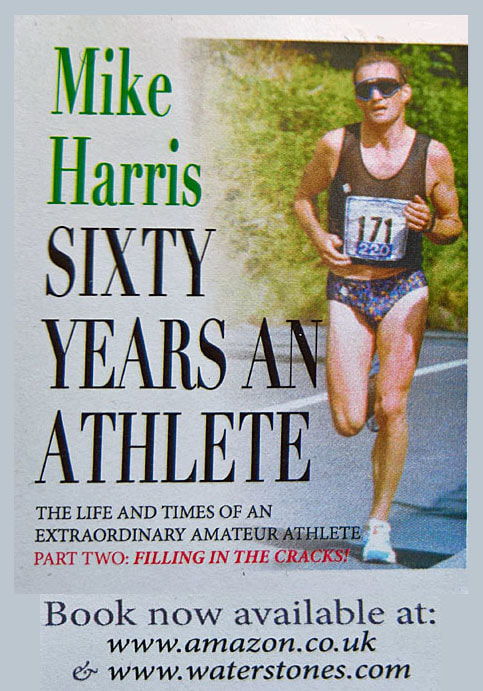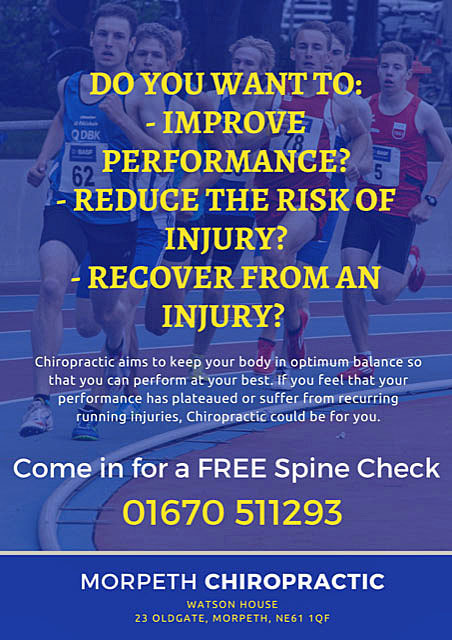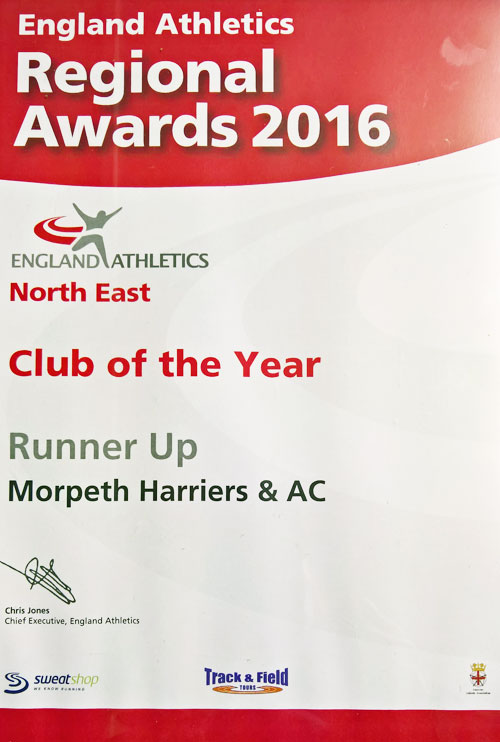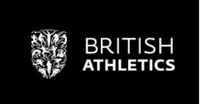|
Morpeth Harriers are delighted to have the support of new sponsor Heartscan for the forthcoming
2019 New Year’s Day Road Race. ANDREW HEBDEN spoke to Heartscan founder and leading cardiologist Dr Antoinette Kenny about why she is supporting the event and why she believes heart screening can help amateur athletes as much as the professionals. Antoinette Kenny wants to get something straight at the outset. “The big message is that sport is good for you,” she says. “It makes the heart healthier and reduces the risk of coronary heart disease. It is unambiguously a good thing.” To anyone who takes their sport seriously, this is welcome news. But Dr Kenny also has some sobering statistics to share. For example, she tells me that experts believe that at least 12 young people die each week in the UK from undiagnosed heart conditions. And around one in 300 people have a potential serious condition that will require lifestyle modification or treatment such as medication or surgery. Sudden deaths during high-profile events such as long-distance runs occasionally make for shocking headlines. The latest example was the Cardiff Half Marathon in October when two men aged 25 and 32 when into cardiac arrest after crossing the finishing line within three minutes of each other. They both later died at the city's University Hospital of Wales. Back on a hot September say in 2005, four runners died whilst participating in the Great North Run - the heaviest death toll in the race’s history. Understandably, these events can leave even occasional runners anxious to know if they might be at risk. For those who participate in more regular exercise - and who pride themselves on pushing their bodies to the limit - the anxiety might justifiably be even higher. After all, Dr Kenny tells me that you are three times more likely to develop a serious problem caused by a heart abnormality when taking part in strenuous exercise than you are at rest. The good news is that cardiac screening has been shown to save lives. So now Dr Kenny, consultant cardiologist at Newcastle’s Freeman Hospital, is reaching out to runners and other sports enthusiasts in the North East in the hope that she can help put their minds at ease. She has more than 20 years of experience of working in heart-related medicine and established Jesmond-based Heartscan in 2014. Much of her experience has been working in football: Heartscan provides screening to all of the North East’s professional football clubs, including regular screenings for young scholars and for players undergoing transfers between clubs, sometimes for tens of millions of pounds. Football is ahead of most other sports when it comes to the extent of heart screening of players, partly as a result of a number of high-profile tragedies in the 1990s. They included the death of Daniel Yorath, son of Wales manager Terry (and sister of TV presenter Gabby Logan), who collapsed and died in the garden of the family home at the age of 15. He had an undetected heart condition. Following the cases a screening programme was set up by the Football Association which has seen thousands of young footballers undergo tests at the age of 16 in the two decades or so since. The results of those tests informed a recent study in the prestigious New England Journal of Medicine based on screenings of 11,168 players between 1996 and 2016. The study, of which Dr Kenny was an author, concluded that the cardiac death rate in these young footballers was more than three times greater than previously thought and that silent heart conditions associated with sudden cardiac death affected 1 in 266 players. Most deaths were due to heart muscle diseases that were not detectable with screening at the age of 16. The study concluded that more regular heart screenings were required to detect these conditions, which, in most cases, are treatable and athletes can return to competitive sport. The sudden death of a young person in any circumstances is tragic. But when it happens in a sporting arena it seems even more unfathomable. “We regard these young people as the healthiest segment of society,” says Dr Kenny, who is an FA-approved cardiologist. “When a young person drops dead it is obviously very upsetting. But these are sportspeople who are putting their heart under great pressure because they are pushing themselves to the limit. “That is the time when you are potentially at risk if you have an underlying heart abnormality.” With the multi-millions of pounds that swill around modern day football, it’s hardly surprising that clubs are keen to make sure their most prized assets - or certainly future assets - are fit and healthy. It’s not just good practice from a health perspective, it’s good economics too. But Dr Kenny, who also works for other North East sports clubs including Durham County Cricket Club, thinks the same logic should apply to the enthusiastic amateur sportsperson. She is now reaching out to local sports clubs to make them aware of her services. As part of this effort, Heartscan has teamed up with Morpeth Harriers and Athletic Club to sponsor its upcoming New Year’s Day road race and talk to its members about the heart risks associated with taking part in intensive exercise. “Keen cyclists spend thousands of pounds on their bicycles,” she says. “Yet the most important engine that we will ever have is our heart. So it makes sense to invest a bit in that as well to make sure it’s in good working order.” Heartscan offers two investigations - an electrocardiogram (ECG) and echocardiogram (echo) - both of which are non-invasive and take less than an hour to complete, plus a personal questionnaire. The results are interpreted by Dr Kenny herself. Screening is particularly useful for under 35s where causes of sudden cardiac death are usually due to inherited abnormalities affecting the heart muscle (cardiomyopathy), disorders of the electrical system of the heart or anatomical anomalies of the coronary arteries. The tests used in cardiac screening, ECG and Echo, can identify most of these abnormalities. For those aged over 35, non-inherited conditions, such as coronary artery disease, are more likely causes of death and these will typically require additional testing to identify. Dr Kenny said: “The tests that I carry out for a member of a local running club are exactly the same as the ones I would do for a footballer who is being transferred for £18m. “There are many people who aren’t professional sportsmen and women but they are very keen recreational athletes. “They are elite, very dedicated and extremely health conscious. And they push themselves to the limits just as much as the professionals do.” Dr Kenny is eager to make the service as affordable as possible, including offering discounts to local sports clubs. Keen runner Xena Marshall, 43, of Killingworth, underwent a scan last year after experiencing heart palpitations following a virus. “I was naturally anxious and was keen to make sure that there wasn’t something structurally wrong with my heart and that I was fit to compete,” said Xena, who is a member of Heaton Harriers running club. “It as very easy to get an appointment and the scans only took 45 minutes to an hour to complete. It was all very straightforward. Although I still get palpitations, it is reassuring to know that the scan came back all clear. “My son is 13 now but as soon as he is 14 I will get him screened. Tragically a close friend of mine lost her son, who was a leading squash player, at the age of 18 when he collapsed and died on court. “I see it as absolutely vital to get your child scanned, especially if they are regularly playing sport.” Dr Kenny admits that some keen sportspeople may prefer to remain unaware of some of the health risks they might face. But she stressed the outcomes are usually positive. “Even if we find a problem it doesn’t necessarily mean it’s the end of your sporting career,” she says. “The majority of people who have an issue can have treatment to either cure or manage the problem, and they can carry on taking part in sport. “However the tragic reality is that the first signal we often get if someone hasn’t been screened is the sudden death. And then there are no second chances.” Dr Kenny will be giving a talk about some of the issues involved in this article in the new year. Heartscan will also offer a discount on its services to members of Morpeth Harriers. For more information visit www.heartscan.co.uk Heartscan is sponsoring the Morpeth Harriers New Year’s Day road race. The race, which starts at 1pm on 1 January 2019, covers a course of about 11km in Morpeth and the surrounding area. Comments are closed.
|
Archives
July 2024
|
